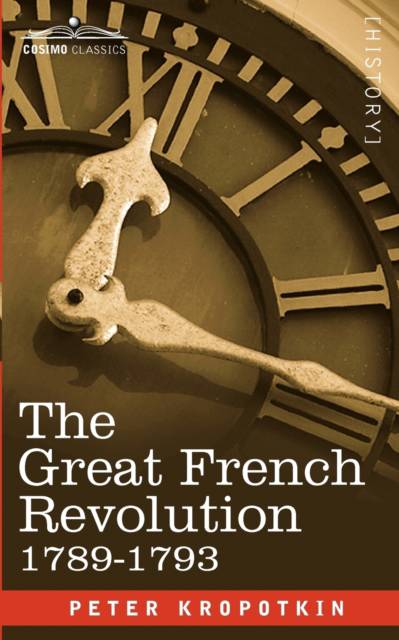
- Afhalen na 1 uur in een winkel met voorraad
- Gratis thuislevering in België vanaf € 30
- Ruim aanbod met 7 miljoen producten
- Afhalen na 1 uur in een winkel met voorraad
- Gratis thuislevering in België vanaf € 30
- Ruim aanbod met 7 miljoen producten
Zoeken
€ 26,95
+ 53 punten
Uitvoering
Omschrijving
Students of French history and lovers of rousing tales alike will find in this hard-to-find work an alternative look at the French Revolution from one of the great anarchist thinkers of the late 19th and early 20th centuries. Communist advocate PETER ALEXEYEVICH KROPOTKIN (1842-1921) was deemed "perfect" by Oscar Wilde, who described Kropotkin as a man with "a soul of that beautiful white Christ which seems coming out of Russia." Here, he takes the first serious look at the economic side of the popular Gallic uprising, exploring: - the spirit of the revolt - the declaration of the rights of man - the fears of the middle classes - financial difficulties of the Revolution - feudal legislation in 1790 - social demands and arbitrary taxation - the problems with paper money - schemes for the socialization of the means of subsistence and exchange - and much more. Originally published in two small volumes, this replica edition combines the authorized 1927 American publication into one book that may change how modern readers think about the French Revolution.
Specificaties
Betrokkenen
- Auteur(s):
- Uitgeverij:
Inhoud
- Aantal bladzijden:
- 626
- Taal:
- Engels
Eigenschappen
- Productcode (EAN):
- 9781605206608
- Verschijningsdatum:
- 1/09/2009
- Uitvoering:
- Paperback
- Formaat:
- Trade paperback (VS)
- Afmetingen:
- 127 mm x 203 mm
- Gewicht:
- 671 g

Alleen bij Standaard Boekhandel
+ 53 punten op je klantenkaart van Standaard Boekhandel
Beoordelingen
We publiceren alleen reviews die voldoen aan de voorwaarden voor reviews. Bekijk onze voorwaarden voor reviews.











